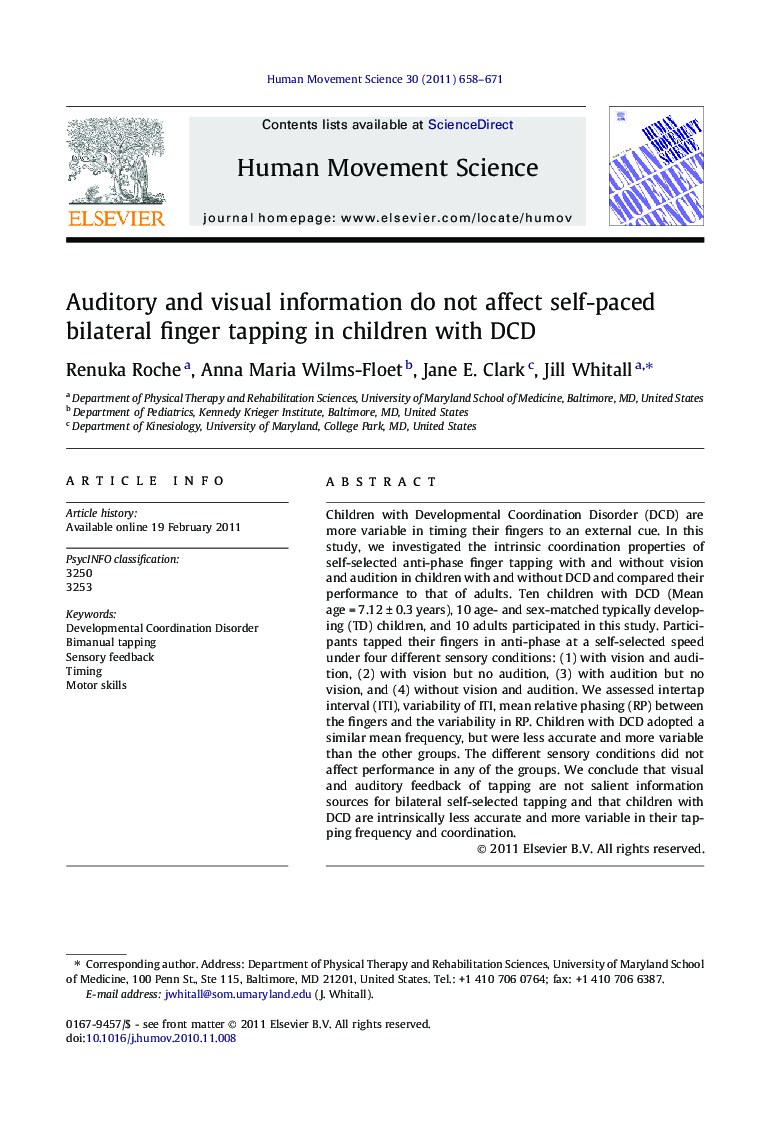| کد مقاله | کد نشریه | سال انتشار | مقاله انگلیسی | نسخه تمام متن |
|---|---|---|---|---|
| 928600 | 922375 | 2011 | 14 صفحه PDF | دانلود رایگان |

Children with Developmental Coordination Disorder (DCD) are more variable in timing their fingers to an external cue. In this study, we investigated the intrinsic coordination properties of self-selected anti-phase finger tapping with and without vision and audition in children with and without DCD and compared their performance to that of adults. Ten children with DCD (Mean age = 7.12 ± 0.3 years), 10 age- and sex-matched typically developing (TD) children, and 10 adults participated in this study. Participants tapped their fingers in anti-phase at a self-selected speed under four different sensory conditions: (1) with vision and audition, (2) with vision but no audition, (3) with audition but no vision, and (4) without vision and audition. We assessed intertap interval (ITI), variability of ITI, mean relative phasing (RP) between the fingers and the variability in RP. Children with DCD adopted a similar mean frequency, but were less accurate and more variable than the other groups. The different sensory conditions did not affect performance in any of the groups. We conclude that visual and auditory feedback of tapping are not salient information sources for bilateral self-selected tapping and that children with DCD are intrinsically less accurate and more variable in their tapping frequency and coordination.
Journal: Human Movement Science - Volume 30, Issue 3, June 2011, Pages 658–671